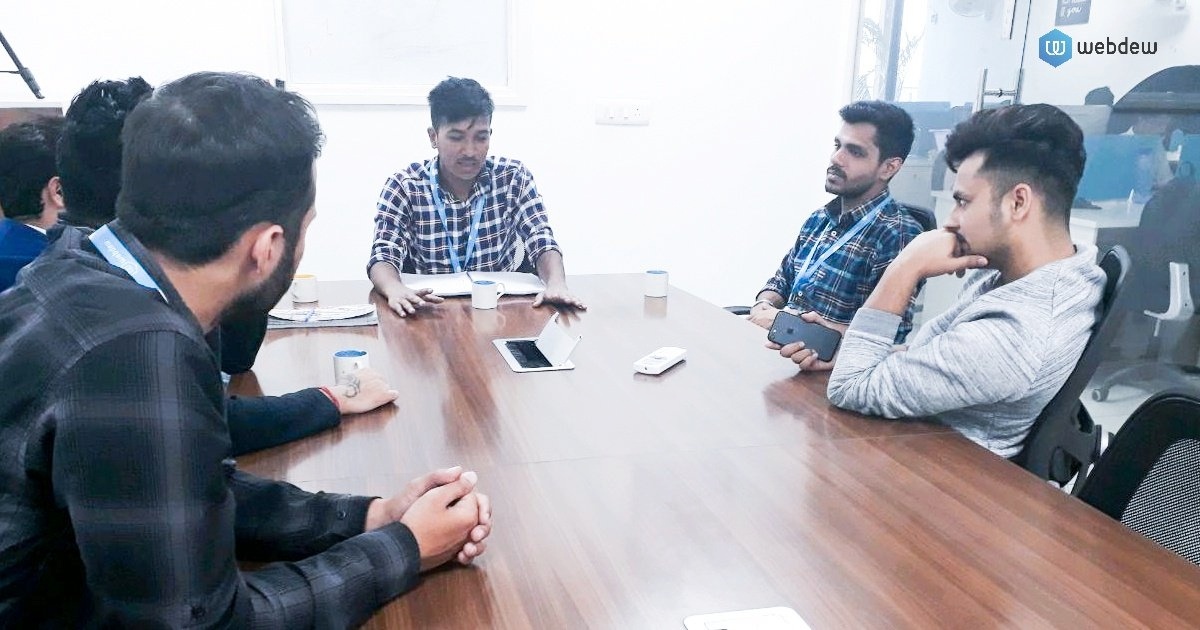If you’re a developer, you might assume that your industry-specific educational background, training, and experience will be enough to get you the jobs you want.
Of course, no career can really gain momentum unless it’s also backed up by the soft skills that make you valuable for more than just your technical expertise.
With that in mind, here are the main soft skills you need as a developer to wow employers and find more success when applying for sought-after positions.
7 soft skills developers
Let's begin....
Communication
This is a broad topic to get started, but one which no developer can afford to ignore. If you can’t communicate effectively, then your ability to collaborate will be limited.
It’s important to be clear, concise, and responsive no matter what form your communication takes. You also need a well-rounded set of skills in this area. So if you are great in face-to-face conversations, but your writing skills are lacking, take action to fix this.
Writing skills, in particular, are often overlooked by developers. For example, if you have no previous experience in putting together a resume, then you might not get invited for an interview, even if you’re the right fit for the role.
The best way this is to follow best practices and check out examples; try BeamJobs resume builder as a starting point and go from there.
Clarity of expression in writing and in conversation is not just about working well with your colleagues but also communicating effectively with clients and customers.
The other side of the coin knows how to listen. Listening is more than just allowing others a chance to speak. It’s engaging with what they have to say and not letting your mind wander while you work out what your next contribution is going to be.
‘Active listening is a skill that’s worth developing in this context, and it relies on a few of the following techniques:
- Making eye contact
- Reading non-verbal cues in the speaker’s body language and tone
- Indicating your attentiveness through small gestures, such as nodding
- Asking questions when you need a point explaining
- Avoiding the temptation to interrupt
Of course, each form of communication that you’ll use as a developer has its own etiquette to follow. It’s just as unhelpful to ignore emails or direct messages from colleagues as it is to talk over them in a meeting.
As well as mentioning your communication skills on your resume or application, you can demonstrate them in the interview as well. Speaking with confidence, as well as listening to the detail of what an interviewer requests from you, will help you stand out for the right reasons.
Problem solving
It’s not just developers that have to solve problems. Every job in the world involves this to some extent, and so it’s a given that any prospective employer will want new hires to be equipped to overcome unforeseen obstacles.
Giving examples of problems you have encountered and solved in the past is useful. But it’s about more than just celebrating your own wins. You also have to show that you recognize the function teamwork fulfills in tricky scenarios.
Resolving issues quickly is important for developers since this usually means limiting the impact of downtime. Turning to colleagues to tackle problems and triumph, rather than slogging it out alone, should be well within your wheelhouse.
There are lots of other skills which fall under the umbrella of problem-solving, such as:
- Keeping a level head in a crisis
- Thinking laterally and creatively to circumvent persistent issues
- Not getting disheartened if the first solution you implement fails
- Adapting your approach if the problem evolves
- Innovating to prevent problems from reoccurring
Time management
Development projects tend to have tight deadlines. Lots will even have strict schedules for maintenance that need to be stuck to after launch. In all cases, this means that developers have to be at the top of their game when it comes to time management.
There are various tools out there to help keep us organized, but good time management is about much more than just hitting deadlines. Another factor is the ability to accurately estimate how long a given task will take to complete.
This is a skill that you will build with experience, and yet it is important that even rookie developers don’t oversell how quickly they can fulfill requests, as it’s easy to get found out.
Managing your time well should also involve knowing your limits. When a colleague or client makes a request of you, there’s no point agreeing to take on the task they set if you don’t have the capacity for it. In this sense, being capable of politely declining others is a worthwhile time management skill to practice and nurture.
This is where decision-making comes into play. There are lots of tactics to consider in this context, and being able to prioritize tasks appropriately and delegate where necessary will empower you.
Accountability
If you are at fault, trying to pass on the blame to someone else in the workplace is never a good idea. Not only will it be detrimental to team cohesion and morale, but it won’t actually benefit you in the long run because you won’t learn anything from your mistakes.
Developers have to be able to admit when they are wrong and take from this the lessons that will make them a better employees.
Mistakes are excellent learning opportunities for entire teams because where you stumble, colleagues can take stock and try not to do the same themselves.
You might feel apprehensive about talking about your past mistakes on a job application. But so long as you frame this as a positive experience that enables you to grow, it will show a refreshing and human side to recruiters.
Visual thinking
No matter how much of a coding whiz kid you might be, unless you have the ability to think visually, you will struggle to create products that connect with end-users.
Knowing how things like interface layout and formatting impact user experience are essential. And while this might sound like a developer-specific skill, it applies to all sorts of roles in other departments and industries.
In essence, it’s an example of creative thinking, which feeds back into our earlier discussion of problem-solving. Aesthetics and user-friendliness aren’t everything, but without them, even the most stable and technically sound project will falter.
Another aspect of this is empathy, or the ability to see things from the point of view of other people, not just your own perspective. Being able to visualize how a finished project will look is one thing, but recognizing whether or not it will appeal to those outside of your team is another.
These are linked skills you can definitely work on even if you don’t think that they are suitably developed at the moment. And sometimes, an employer will simply want you to show that you are willing to learn and grow, rather than coming to them as a fully-formed package.
People management
The further through your career you progress, the more likely it is that you will be expected not only to tend to your own duties but also manage teams and steer them towards a collective goal.
People management might not be why you got into development in the first place, but it is a very transferable soft skill.
Furthermore, since just 33 percent of people actually describe themselves as being engaged with their professions, if you can do anything to increase satisfaction levels among the people you manage, productivity will skyrocket.
Being able to assist team members in realizing their true potential, as well as providing them a path to progress along, and being aware of your own inadequacies rather than only highlighting them in others, are all part of good people management.
Some of these are skills you can acquire simply by moving up into managerial positions. However, if an employer is willing to offer you specific management training, then this will be a benefit.
Focus
Developers can have a million things flying around in their heads at any one time and a thousand tasks they need to juggle over the course of a week.
However, you also need to be capable of focusing all of your energy and attention on one responsibility at a time and not leave jobs half-finished in the expectation someone else will tidy things up after you.
Focus is peripherally related to time management but deserves its own section because it doesn’t matter how well organized your schedule is if you can’t actually sit down and complete the work you need to do each day.
Final thoughts
So-called ‘soft’ skills can be quite hard to master if you don’t have them innately. The earlier in your career you can add them to your toolkit, the better your chances of bagging your dream job.
It will take time, and you might need to drill down into some bad habits and imperfect personality traits you’ve accumulated. But expanding your soft skills is always worthwhile in the end. Visit webdew careers blog to know more.





